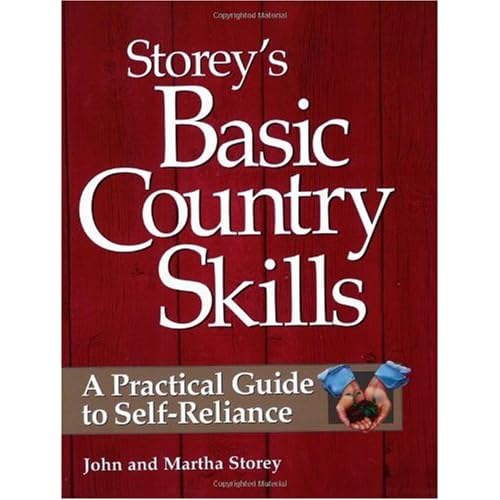I have heard and often reasoned myself for the necessity of the divinity of Christ for the efficacy of the atonement. If Jesus were merely a man, and not God, then he could not pay for the sins of all who come. At best a perfect man could replace one other. I have never really seen this reasoning in Scripture, though, before this morning:
“Truly no man can ransom another, or give to God the price of this life, for the ransom of their life is costly and can never suffice, that he should live on forever and never see the pit. But God will ransom my soul from the power of Sheol, For he will receive me.” Psalm 49:7-9, 15

 I received a great book for Christmas this year: Storey's Basic Country Skills: A Practical Guide to Self Reliance by John and Martha Story. As I read some of it, several ideas that have been swirling about in my mind emerged.
I am coming to understand that homesteading is not easy. It is rewarding, but not easy. It takes time, energy, and money (at least at first). I am at somewhat of a crossroads in life where I can decide how much more to put into homesteading. I am beginning to think I should go ahead and put more into it. Here is a list of reasons why:
I received a great book for Christmas this year: Storey's Basic Country Skills: A Practical Guide to Self Reliance by John and Martha Story. As I read some of it, several ideas that have been swirling about in my mind emerged.
I am coming to understand that homesteading is not easy. It is rewarding, but not easy. It takes time, energy, and money (at least at first). I am at somewhat of a crossroads in life where I can decide how much more to put into homesteading. I am beginning to think I should go ahead and put more into it. Here is a list of reasons why: I was notified last weekend that my workshop proposals were accepted and I will be speaking (for the first time) at this year's North Carolinians for Home Education Conference. I'm not yet sure which one(s) were selected or when they will be scheduled. Here are the descriptions:
I was notified last weekend that my workshop proposals were accepted and I will be speaking (for the first time) at this year's North Carolinians for Home Education Conference. I'm not yet sure which one(s) were selected or when they will be scheduled. Here are the descriptions: